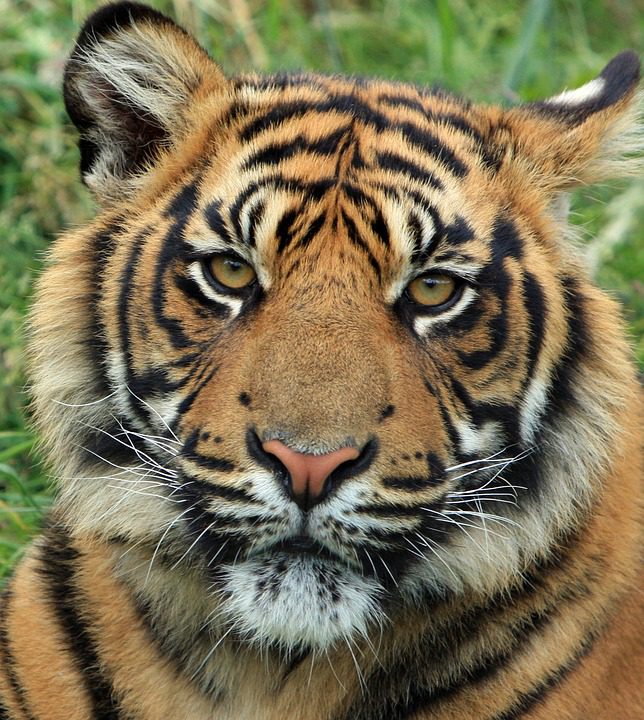Cats are beloved pets, but they require special diets to stay healthy and happy. Many of the foods that humans enjoy aren’t necessarily safe for cats to eat, so it’s important to be aware of what cats should and shouldn’t consume. In this article, we’ll discuss some of the foods that cats should avoid, and why it’s important to keep them away from these items.
What Can’t Cats Eat?
Table of Contents
Cats are curious creatures and may try to eat just about anything they find. While cats are obligate carnivores, meaning they need a diet mostly composed of meat, they can sometimes get into other things they shouldn’t eat. Some of these items can be toxic and potentially fatal to cats. Knowing what cats shouldn’t eat, and making sure they don’t get their paws on it, is important for keeping your cat healthy and safe.
Alcohol
Alcohol is toxic for cats. While it may seem like a good idea to give your cat a sip of your beer or a bit of wine, it can cause serious health problems, even death. Alcohol has the same effects on cats as it does on humans, only more so. Ingesting alcohol can cause vomiting, diarrhea, decreased coordination, central nervous system depression, difficulty breathing, tremors, coma, and even death.
Caffeine
Caffeine can be very dangerous for cats. It is found in coffee, tea, chocolate, energy drinks and other caffeinated beverages. Ingesting it can cause vomiting, restlessness, increased heart rate, abnormal heart rhythm, tremors, seizures and even death.
Grapes and Raisins
Grapes and raisins can be toxic to cats, and can lead to kidney failure. While the exact substance in grapes and raisins that causes the toxicity is still unknown, it is clear that cats should not eat them. If your cat has eaten grapes or raisins, you should contact your vet immediately.
Onions and Garlic
Onions and garlic contain compounds that can be toxic to cats. Eating these foods can cause anemia, which is a decrease in red blood cells. This can lead to lethargy, pale gums, and difficulty breathing. If your cat has eaten onions or garlic, you should contact your vet immediately.
Dairy Products
Dairy products can be difficult for cats to digest, and can cause digestive upset. Dairy products like milk, cheese, and ice cream can cause vomiting, diarrhea, and other gastrointestinal issues. If your cat seems to be having digestive issues from dairy products, you should contact your vet.
Human Medicines
Human medications should never be given to cats, even if the dosage is adjusted for their weight. These medications can be toxic and even fatal to cats if given in the wrong dosage. If you think your cat has ingested a human medication, you should contact your vet immediately.
Fat Trimmings and Bones
Fat trimmings and bones should not be given to cats. Fat trimmings can cause pancreatitis, and bones can splinter and cause internal damage or become lodged in the throat. If your cat has eaten fat trimmings or bones, you should contact your vet immediately.
Conclusion
Cats can be curious creatures and may try to eat things they shouldn’t. Knowing what cats can’t eat is important for keeping them safe and healthy. Items such as alcohol, caffeine, grapes and raisins, onions and garlic, dairy products, human medications, fat trimmings, and bones should all be avoided. If your cat has ingested any of these items, you should contact your vet immediately.
## Common Myths About What Cats Can and Can’t Eat
1. Myth: Cats can eat anything.
Fact: Cats are obligate carnivores, meaning that their diets consist primarily of animal-based proteins. While cats can eat some fruits and vegetables, they should never be given dairy products, raw meat, chocolate, fatty foods, caffeine, onions, garlic, grapes, raisins, macadamia nuts, or anything containing xylitol.
2. Myth: Cats need milk in their diets.
Fact: Cats do not need milk in their diets, as it can actually cause digestive issues. Milk contains lactose, which many cats are unable to digest. Instead, cats should be given plenty of fresh water.
3. Myth: Cats can eat anything humans eat.
Fact: While some human foods are safe for cats to eat, such as cooked eggs, cooked fish, and cooked chicken, many human foods are toxic to cats. These foods include dairy, chocolate, onions, garlic, grapes, raisins, macadamia nuts, and anything containing xylitol.
Frequently Asked Questions
What foods are toxic to cats?
Many common human foods and household items can be toxic to cats, including chocolate, onions, garlic, grapes, raisins, and xylitol (an artificial sweetener). Additionally, cats should not eat foods with a high fat content, such as fried foods, as this can cause pancreatitis.
What plants are toxic to cats?
Many common houseplants can be toxic to cats, including lilies, aloe vera, ivy, and dieffenbachia. Outdoor plants that can be toxic to cats include lantana, English ivy, tomato plants and foxglove.
Conclusion
.
Cats are obligate carnivores and need a diet mostly composed of meat, but can sometimes get into other things they shouldn’t eat. Alcohol, caffeine, grapes and raisins, onions and garlic, dairy products, human medications, fat trimmings, and bones should all be avoided as they can be toxic and potentially fatal to cats. If your cat has ingested any of these items, contact your vet immediately.



